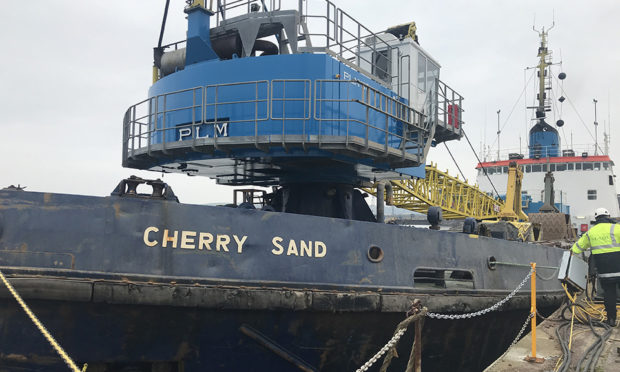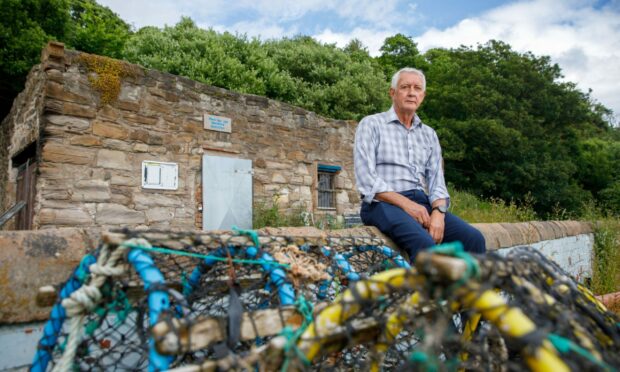The death of a dredger master who was crushed between his vessel and the jetty at Rosyth last year could have been avoided had a similar accident five weeks beforehand been properly reported, The Courier has learned.
Brian Smith, 72, died after he fell while attempting to step ashore to assist berthing the Cherry Sand on February 28, 2019.
A subsequent report into the tragedy by the Marine Accident Investigation Branch (MAIB) found a number of safety failings and described the method for self-mooring the Cherry Sand as “inherently hazardous”, as crew routinely stepped ashore and on board when the vessel was not tight alongside.
Linesmen were not used and no measures were taken to avoid having to place a crew member ashore while the vessel was unmoored.
The MAIB also highlighted the dangers of relying on older crew members, with four people who lost their lives over the past five years attempting to step on or off mooring operations between the age of 58 and 72.
It has now come to light a similar accident happened aboard the Cherry Sand on January 23, when the boat’s chief officer fractured his wrist after a fall, which the MAIB believes represented a “clear indication of a safety problem” on the dredger.
An internal investigation has been launched after it emerged the chief officer falsified his accident report following that incident, claiming the worker had fallen down some stairs when, in fact, he had been attempting to cross from Cherry Sand to shore during a self-mooring operation.
A spokesperson for the MAIB suggested Mr Smith’s death five weeks later could therefore have been prevented.
“The operation had not been subject to a thorough risk assessment; the Safe System of Work procedure had not been followed, an injury had resulted, and an attempt had been made to cover up the nature of the accident,” the MAIB noted.
“When the operations manager joined the ship he briefed the crew on the incident and the resulting disciplinary action.
“While he reminded them to follow procedures, he did not take the opportunity to remind them what the mooring procedure entailed.
“Consequently, a chance was missed to remind all concerned of the ship-specifc mooring and unmooring procedures to be followed.
“Had the operations manager referred to Safe System of Work No.5, it might have prompted him to revisit the decision to dispense with linesmen.
“Reviewing the Safe System of Work would likely have highlighted the inconsistencies between the safety documentation and local practices, such as the absence of bulwark gates, the inadequacy of the rubbing band as a safe platform to stand on, and the practice of crew stepping ashore before the vessel was tight alongside.
“By treating the misreporting of the accident on January 23 as a disciplinary matter, the opportunity was lost to learn safety lessons and make improvements that could have helped prevent the accident five weeks later that led to the death of the master.”
With the Cherry Sand, owned by Cardiff-based UK Dredging, too far from its berth, Mr Smith’s foot missed the quay as he tried to jump ashore.
He could not be revived after his upper body struck chains and the quayside at Rosyth with force, before he fell between the quay wall and the vessel and was crushed by the moving dredger before slipping into the water.
A recommendation has been made to the Maritime and Coastguard Agency to amend the Code of Safe Working Practices for Seafarers to provide guidance on mooring and unmooring operations, and when it is permissible for vessels to self-moor.










